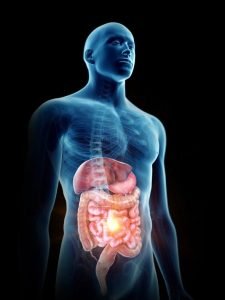
How Your Diet Shapes Your Bowel Movements (and Gut Health)
What you eat directly impacts your digestion, bowel movements, and overall gut health. Struggling with constipation, bloating, or irregularity? The key lies in your diet.

Home » Unraveling the Intricate Web: The Gut-Brain Connection
A. Brief Overview of the Gut-Brain Connection
The human body is an intricate system where different organs and functions are interconnected, and perhaps one of the most fascinating connections lies in the link between the gut and the brain. This intricate relationship, known as the gut-brain connection, plays a crucial role in our overall well-being. As we delve into the depths of this complex interaction, we discover that it’s not just a physiological correlation but a dynamic communication network shaping our mental and physical health.
B. Importance of Understanding the Link between the Gut and Brain
Understanding the intricacies of the gut-brain connection is not merely an academic pursuit. The profound impact it has on our daily lives, ranging from mood to cognitive function, underscores its significance. By exploring this connection, we gain insights that could potentially revolutionize how we approach mental health, diet, and lifestyle choices.
C. Preview of Key Points to be Discussed in the Blog Post
In the upcoming sections, we will embark on a journey through the anatomy of the gut-brain connection, exploring the enteric nervous system and the vagus nerve. We will then unravel the role of the microbiome in this complex relationship, delving into its influence on neurotransmitter production. As we progress, we’ll uncover the impact of the gut-brain axis on mental health and discuss the various factors that influence this connection. To wrap up, we’ll provide practical tips for nurturing a healthy gut-brain connection and explore emerging research that could shape the future of healthcare.
A. Explanation of the Enteric Nervous System (ENS)
The gut harbors its own nervous system, known as the enteric nervous system (ENS). Nestled within the walls of the digestive tract, the ENS is often referred to as the “second brain.” Its intricate network of neurons enables it to independently regulate the digestive process, but its influence extends beyond the confines of the gut. Understanding the location and structure of the ENS is paramount to grasping the foundation of the gut-brain connection.
1. Location and Structure
The ENS spans the entire gastrointestinal tract, from the esophagus to the rectum, comprising millions of neurons. This network operates autonomously, allowing it to manage the complex process of digestion without constant input from the central nervous system.
2. Role in Communication Between the Gut and Brain
While the ENS can function independently, it is not isolated. It communicates bidirectionally with the central nervous system, sending and receiving signals that influence various bodily functions. This intricate dialogue forms a crucial part of the gut-brain connection, impacting not only digestion but also our overall health and well-being.
B. Overview of the Vagus Nerve
Central to the communication highway between the gut and the brain is the vagus nerve. This cranial nerve acts as a vital link, connecting the brainstem to the digestive organs and other essential systems throughout the body.
1. Connection Between the Gut and Brain via the Vagus Nerve
The vagus nerve serves as a two-way street, transmitting signals between the gut and the brain. When we talk about “gut feelings” or experiencing a physical reaction to stress, we are, in part, referring to the influence of the vagus nerve. It plays a pivotal role in conveying information about the state of our gut to the brain and vice versa.
2. Significance in Bidirectional Communication
Understanding the significance of the vagus nerve in bidirectional communication sheds light on the dynamic nature of the gut-brain connection. As we delve deeper into this intricate relationship, we begin to appreciate how the constant exchange of information between these two systems profoundly influences our overall health.
In the subsequent sections, we will explore the role of the microbiome in shaping the gut-brain connection, unraveling the profound impact of gut bacteria on neurotransmitter production.

A. Introduction to the Gut Microbiome
To truly understand the intricacies of the gut-brain connection, we must turn our attention to the gut microbiome—an incredibly diverse and dynamic ecosystem of microorganisms residing in our digestive tract. Comprising trillions of bacteria, viruses, fungi, and other microorganisms, the gut microbiome plays a pivotal role in shaping our overall health.
1. Definition and Composition
The gut microbiome is a bustling community, unique to each individual. Its composition is influenced by various factors, including genetics, diet, environment, and lifestyle. This diverse array of microorganisms forms a symbiotic relationship with the host, contributing to essential functions such as digestion, metabolism, and immune system regulation.
2. Influence on Gut-Brain Communication
The gut microbiome is not merely a passive bystander in our digestive process. It actively participates in bidirectional communication with the enteric nervous system and the central nervous system, thereby influencing the gut-brain connection. One of the key mechanisms through which it exerts its impact is by modulating the production of neurotransmitters.
B. Impact of Gut Bacteria on Neurotransmitter Production
Neurotransmitters are chemical messengers that play a crucial role in transmitting signals within the nervous system. Remarkably, a significant proportion of these neurotransmitters, such as serotonin, dopamine, and gamma-aminobutyric acid (GABA), are produced in the gut. This production is intricately tied to the activities of the gut microbiota.
1. Serotonin, Dopamine, and GABA
Serotonin, often referred to as the “feel-good” neurotransmitter, is crucial for mood regulation. Dopamine, associated with pleasure and reward, and GABA, a calming neurotransmitter, also contribute to our mental well-being. The synthesis of these neurotransmitters by gut bacteria highlights the profound impact the microbiome has on our emotional and cognitive functions.
2. Mood and Cognitive Implications
The implications of this microbiome-driven neurotransmitter production extend beyond the gut. Research suggests that an imbalance in the gut microbiome, known as dysbiosis, may contribute to mental health disorders such as anxiety and depression. By unraveling the connections between gut bacteria and neurotransmitter production, we gain insights into potential avenues for mental health interventions.
In the following sections, we will explore the gut-brain axis’s influence on mental health, shedding light on the connection between the gut and conditions like anxiety and depression.

A. Connection Between the Gut and Mental Health
As we venture further into the exploration of the gut-brain connection, a compelling narrative emerges—one that intertwines the state of our gut with our mental health. Recent studies have revealed a profound connection between the gut and conditions like anxiety and depression, suggesting that our digestive system may hold the key to understanding and managing mental well-being.
1. Research Findings on Gut Health and Mood Disorders
Scientific inquiry into the gut-brain axis has unveiled a wealth of information linking gut health to mood disorders. Studies have shown that individuals with certain mental health conditions often exhibit alterations in the composition of their gut microbiota. This correlation prompts us to consider the gut as not only a digestive organ but also a key player in emotional and cognitive regulation.
2. Role in Anxiety and Depression
Anxiety and depression, prevalent mental health challenges, are now being scrutinized through the lens of the gut-brain axis. Emerging evidence suggests that disturbances in gut microbiota, inflammation, and the production of neurotransmitters in the gut may contribute to the development or exacerbation of these conditions. This paradigm shift prompts a reevaluation of treatment approaches, emphasizing the need to consider the gut when addressing mental health concerns.
B. Overview of the Gut-Brain Axis
The gut-brain axis serves as the conduit through which the gut communicates with the brain and vice versa. This intricate network involves the ENS, the vagus nerve, and the microbiome. Understanding the gut-brain axis unveils the mechanisms through which gut health influences mental well-being, offering potential avenues for therapeutic interventions.
1. Communication Pathways and Mechanisms
Communication within the gut-brain axis occurs through a myriad of pathways. Neuronal signaling via the vagus nerve, the release of neurotransmitters by gut bacteria, and the modulation of immune responses collectively contribute to the constant dialogue between the gut and the brain. This dynamic interplay highlights the multifaceted nature of the gut-brain connection.
2. Implications for Mental Health Treatment
The recognition of the gut’s role in mental health opens up new possibilities for treatment strategies. Lifestyle modifications, dietary interventions, and targeted approaches to modulate the gut microbiome are emerging as potential avenues for managing mental health disorders. By acknowledging the gut-brain axis, we empower individuals and healthcare practitioners to adopt holistic approaches that address both physical and mental well-being.
In the subsequent sections, we will delve into the factors influencing the gut-brain connection, exploring the impact of diet, nutrition, and stress on this intricate relationship.
A. Diet and Nutrition
The old adage “you are what you eat” takes on a new level of significance when we consider its implications for the gut-brain connection. The food we consume plays a pivotal role in shaping the composition of the gut microbiota and, consequently, influences the communication between our gut and brain.
1. Impact of Food Choices on Gut Health
Certain dietary patterns, rich in fiber and diverse nutrients, promote a healthy and diverse gut microbiome. On the contrary, diets high in processed foods and low in fiber may contribute to an imbalance in gut bacteria. Understanding the impact of food choices on gut health is crucial for fostering a favorable environment for the gut-brain connection.
2. Nutrients that Support a Healthy Gut-Brain Connection
Specific nutrients play a key role in supporting a robust gut-brain connection. For example, prebiotics, found in foods like garlic, onions, and bananas, nourish beneficial gut bacteria. Additionally, omega-3 fatty acids, abundant in fish and flaxseeds, have been associated with positive effects on both gut health and mental well-being. By incorporating these nutrients into our diets, we can actively contribute to the flourishing of our gut-brain axis.
B. Stress and Its Effect on the Gut
Stress, often considered a mental phenomenon, exerts a tangible impact on our gut health. The bidirectional communication within the gut-brain axis means that stress can influence gut function, and conversely, the state of the gut can influence our stress responses.
1. Biological Response to Stress
When the body experiences stress, it initiates a cascade of physiological responses. This includes the release of stress hormones, such as cortisol, which can impact the gut by altering its motility, blood flow, and permeability. Chronic stress may contribute to an imbalance in the gut microbiome and exacerbate conditions such as irritable bowel syndrome (IBS) and inflammatory bowel disease (IBD).
2. Strategies to Manage Stress for a Healthier Gut
Recognizing the intimate connection between stress and gut health underscores the importance of stress management for overall well-being. Practices such as mindfulness, meditation, and regular physical activity have been shown to positively influence both stress levels and gut health. By adopting stress-reducing strategies, individuals can take proactive steps to nurture a harmonious gut-brain connection.
In the subsequent sections, we will provide practical tips for nurturing a healthy gut-brain connection, exploring the role of probiotics, prebiotics, and lifestyle changes.
A. Probiotics and Prebiotics
The symbiotic relationship between our gut and the microorganisms that inhabit it can be actively nurtured through the incorporation of probiotics and prebiotics into our daily routines.
1. Importance of Incorporating Them into the Diet
Probiotics are live beneficial bacteria found in fermented foods like yogurt, kefir, and sauerkraut. These microorganisms contribute to a balanced gut microbiome, promoting digestive health and supporting the gut-brain connection. Prebiotics, on the other hand, are non-digestible fibers found in certain fruits, vegetables, and whole grains. They serve as fuel for the growth of beneficial bacteria, enhancing the overall diversity and resilience of the gut microbiome.
2. Food Sources and Supplements
To optimize the gut-brain connection, consider incorporating probiotic-rich foods and prebiotic sources into your diet. Additionally, if dietary constraints exist, supplements are available to provide a convenient and concentrated source of these beneficial elements. However, it’s crucial to consult with a healthcare professional before introducing supplements to ensure they align with individual health needs.
B. Lifestyle Changes for Gut Health
Beyond dietary considerations, lifestyle choices also play a pivotal role in nurturing a healthy gut-brain connection. Incorporating certain practices into our daily lives can contribute to the overall well-being of both our gut and brain.
1. Exercise and Its Positive Influence
Regular physical activity not only benefits cardiovascular health but also positively influences the gut microbiome. Exercise has been shown to enhance microbial diversity, promoting the growth of beneficial bacteria. The positive impact of exercise on mental health further underscores its role in fostering a harmonious gut-brain connection.
2. Adequate Sleep and Its Impact on the Gut-Brain Axis
Quality sleep is a cornerstone of overall health, and its importance extends to the gut-brain axis. Disruptions in sleep patterns have been linked to alterations in the gut microbiome and increased susceptibility to gastrointestinal issues. Prioritizing sufficient and restful sleep contributes to a resilient gut-brain connection.
In the subsequent sections, we will explore emerging research and future perspectives on the gut-brain connection, shedding light on advancements that may shape the landscape of healthcare.
A. Recent Studies and Findings
In the ever-evolving landscape of scientific research, recent studies have provided exciting insights into the intricacies of the gut-brain connection. As technology advances, our understanding of the mechanisms governing this complex relationship deepens, offering novel perspectives on how we can harness this knowledge for the improvement of overall health.
1. Advances in Gut-Brain Connection Research
Cutting-edge technologies, such as metagenomics and neuroimaging, have allowed researchers to explore the gut-brain connection with unprecedented precision. Studies now delve into the molecular interactions between gut bacteria and the nervous system, uncovering previously unknown facets of this dynamic relationship. Advances in our understanding pave the way for innovative therapeutic interventions targeting the gut to positively impact mental health.
2. Potential Implications for Future Treatments
The revelations from recent studies hold promise for the development of novel treatments for a range of conditions. From mental health disorders to gastrointestinal diseases, the potential applications of gut-brain connection research are far-reaching. Future treatments may involve personalized interventions, targeting specific aspects of the gut microbiome or the enteric nervous system, to address individual health needs.
As we conclude our exploration of the gut-brain connection, it becomes evident that this dynamic relationship is not a mere scientific curiosity but a profound aspect of human biology with far-reaching implications. The convergence of knowledge from the fields of neuroscience, microbiology, and nutrition opens doors to innovative approaches in healthcare.
We began our journey by understanding the anatomy of the gut-brain connection, exploring the enteric nervous system, the vagus nerve, and the role of the gut microbiome. Moving forward, we examined the influence of this connection on mental health, unraveling its ties to anxiety and depression. Exploring factors such as diet, stress, and lifestyle, we identified practical tips for nurturing a healthy gut-brain connection.
In our ever-evolving quest for knowledge, the gut-brain connection remains an exciting frontier. The integration of emerging research findings into clinical practice holds the potential to transform the landscape of healthcare. As we look to the future, we encourage individuals and healthcare professionals alike to remain curious, embracing the evolving understanding of the gut-brain connection and its implications for holistic well-being.
The journey does not end with this exploration; it is a call to action. Whether through dietary choices, lifestyle modifications, or advocacy for further research, each individual has a role to play in fostering a healthy gut-brain connection. By acknowledging the intricate interplay between our gut and brain, we empower ourselves to make informed decisions that contribute to a vibrant and flourishing life.
In the grand tapestry of human health, the gut-brain connection stands as a testament to the interconnectedness of our bodily systems. As we continue to unravel its mysteries, we embark on a journey towards a future where holistic well-being is not just a goal but a tangible reality.

What you eat directly impacts your digestion, bowel movements, and overall gut health. Struggling with constipation, bloating, or irregularity? The key lies in your diet.

You’ve been pooping wrong your entire life—and it’s wrecking your gut. Dr. Gina Sam’s poop method reveals the shockingly simple, doctor-backed fix that makes straining

Struggling with bloating after protein shakes? Your choice of protein could be affecting your gut health. Pea protein is gentle and gut-friendly, while whey protein

Table of Contents <svg aria-hidden=”true” viewBox=”0 0 448 512″ xmlns=”http://www.w3.org/2000/svg”><path d=”M207.029 381.476L12.686 187.132c-9.373-9.373-9.373-24.569 0-33.941l22.667-22.667c9.357-9.357 24.522-9.375 33.901-.04L224 284.505l154.745-154.021c9.379-9.335 24.544-9.317 33.901.04l22.667 22.667c9.373 9.373 9.373 24.569 0 33.941L240.971

Happy Poops.
What about your friends?